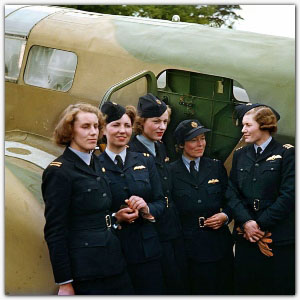
White Waltham Airfield and the ATA
The Second World War was the first conflict in which aircraft played a major role.
The Royal Air Force expanded hugely in the late 1930s in anticipation of a probable global conflict, and needed massive numbers of new state of the air aircraft. Losses would also need to be replaced quickly, with aircraft to be delivered directly to squadrons ready for service. But how was this to be done ? The system used in the First World War of sending a pilot to collect a new aeroplane from an aircraft park just would not work. So, something else was needed. The Air Transport Auxiliary (ATA) was created in 1940 to support the RAF by ferrying new, damaged and repaired aircraft to where they needed to be. The men and women of the ATA were expected, and did, fly anything that the RAF was using with little training other than a copy of the pilots notes.
This is their story, and the story of the ATA headquarters at White Waltham Airfield.
This is the first of three talks in the Autumn Potpourri Talks Series. The other talks take place on 27th November and 11th December. You may book tickets for individual events or for all three talks in the series for a reduced price.
To book
Pre-booking is required, because the event link will be sent in advance.
To join this talk, you will need a computer device with speakers. Ideally, also a webcam and microphone. You also need to be able to access the internet from it. First-time users of Zoom, will be asked to download a small piece of software, which will be sent in advance.
Image: Public Domain, via Wikimedia Commons
To book – scroll down.
Speaker
-
 Dr Richard MarksIndustrial, Military and Railway Historian
Dr Richard MarksIndustrial, Military and Railway HistorianRichard is a published historian based in Berkshire who specialises in industrial, military, and railway history and also the history of science. His current areas of research are industrial development in the Victorian period, the development of the railway and canal systems in Britain in the mid to late 19th Century and the history of British Rail. He has a PhD in economic history. Richard’s books on British Rail Engineering and the Wantage Tramway Company were both both published by Pen and Sword in 2024.

